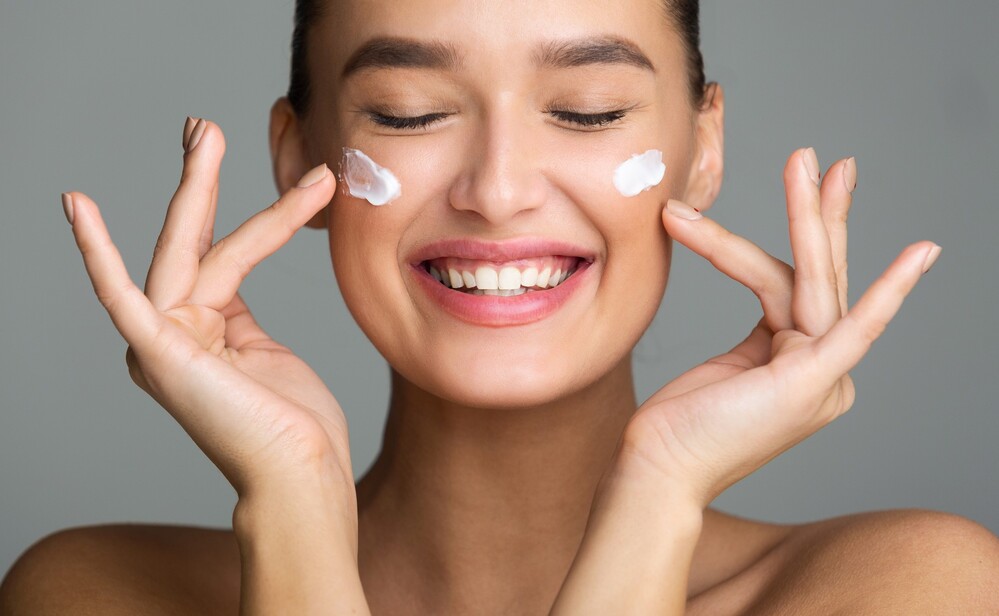Smoking is terrible for your teeth. Not only does it cause yellowing, discolouration, and bad breath, it also increases the chances of gum disease and oral cancer. Not so many people are aware of the fact that smoking can even lead to periodontitis – a form of gum disease that can cause tooth loss by destroying the support structures of the teeth. Periodontitis usually starts to occur in adults aged 30 or above. It causes inflammation, which causes gums to pull away from the teeth and form pockets around them. This allows bacteria to grow and destroy tooth-supporting tissues.
Tobacco contains more than 7,000 chemicals, some of which are toxic. When you smoke a cigarette, these chemicals enter your bloodstream and go straight to your gums and teeth. They damage your teeth’s enamel, allowing bacteria to enter your mouth.
We researched and came to some conclusions that will help you get rid of the bad effects that cigarettes have on your teeth.
How Does Smoking Affect Your Oral Health?
Smoking and oral health — it’s not what you might expect. It’s true, smoking is an oral health risk and that makes sense if you think about it. After all, when you light up a cigarette, the smoke sits in the mouth. But it’s important to remember that smoking isn’t the only cause of bad breath. In fact, it gives you halitosis, or bad breath, in only a small percentage of cases. Smoking can also increase your risk of gum disease, tooth decay and other oral infections. The more cigarettes you smoke, the greater your risk of oral health problems will be.
Tobacco is packed with nicotine and tar, which are both harmful to teeth and gums if they come into contact with them. Smoking can also make people sick more often which means they lead a generally unhealthy lifestyle, further increasing their risk of infection.
Tobacco use also causes discolouration on your teeth and gums but this is a cosmetic problem so it doesn’t really matter how many cigarettes you smoke as long as it does not affect your health!
Smoking weakens the immune system, increasing the risk of oral infections. The presence of tobacco in your mouth also increases the risk of cavities and tooth decay. Smokers have a higher chance of developing periodontal disease, where gum tissue and bone around your teeth is destroyed.
Although you are aware that smoking has a negative effect on your health, it is important to know how to reduce the negative effects that cigarettes have on your teeth.
-
Smoker’s Teeth
Smoking has an impact on the way your teeth look, this is a fact that cannot be denied. Whether you are a social smoker or an addictive one, the nicotine present in cigarettes is responsible for discolouring the teeth. This leads to yellowish stains on the surface of the teeth that are hard to get rid of. Tobacco also causes bad breath and gum diseases resulting in bleeding gums, which then turn into sores and eventually loose teeth as well.
Tobacco users tend to have more dental problems than non-smokers as they tend to consume more sugary drinks that lead to tooth decay. Smoking tobacco causes gum infections and tooth loss due to poor blood circulation in gums and tooth roots. Smoking also results in excessive plaque formation that blocks the flow of oxygen and other nutrients needed by the tooth roots for the healthy growth of teeth. Over time, the roots start weakening and eventually this leads to tooth loss.
-
Consider Smoking Cessation
There are ways to reduce the harm of smoking on your teeth, but the best way is to quit smoking. Smoking causes many problems, and the mouth is not spared. Smoking can harden the enamel at the surface of your teeth. This happens because nicotine constricts blood vessels in the body and makes vitamin C less available for teeth. The gums can also be affected because tobacco smoke contains substances that cause inflammation.
-
Proper Teeth Cleaning
Many people who smoke tend to neglect their oral hygiene. You need to take care of your teeth and gums no matter what. If you are a smoker, you should be brushing at least twice a day and flossing regularly, in addition to having cleanings done on a regular basis. By taking good care of your teeth, you can help prevent things like tooth decay and gum disease from setting in.
Flossing will help prevent buildup between teeth. Flossing should be done once a day. Use an anti-bacterial mouthwash to kill the germs in your mouth and help provide additional fresh breath. A good quality toothpaste also helps keep your teeth shiny, white, and clean. It’s important to find a toothpaste that tastes good and that you like to use. Most importantly, visit your dentist regularly for checkups and professional cleanings. This can help you catch problems before they become serious and costly.
-
Teeth Whitening Treatments Can Be Helpful
Teeth whitening treatments can remove discolouration from smoking. Some people even have teeth whitening performed by their dentist after smoking. But some side effects might be caused by ingredients used in a tooth whitening treatment. Your dentist will help you weigh the risks against how much a particular treatment will improve your smile.
Tooth discolouration is caused by smoking, consuming too much coffee or tea, and consumption of certain foods. One of the most effective ways to get rid of tooth discolouration is to keep your teeth clean. Another way you can use to get rid of discolouration is to visit your dentist as soon as possible. Your dentist will be able to recommend a professional tooth whitening treatment that will make your smile whiter than ever before.
-
Avoid Stain-causing Food And Beverages
Smoking doesn’t cause stains on its own; rather, it intensifies the stains already present in your mouth. This is why it’s recommended that smokers use a straw when they drink coffee or tea. Coffee can get into crevices in your teeth and leave behind a dark residue that tobacco will then intensify. It is recommended that after each cup of coffee, brush your teeth with water. Smoking also brings out red wine’s colour more strongly than does drinking alone; avoid both together if possible.
-Eat more healthy food that is good for your teeth, like fruits and vegetables. Calcium-rich foods can be good for your teeth. You can find calcium in dairy products. They strengthen enamel, neutralize mouth acids, and act as natural teeth cleaners. Starchy foods like bread, rice and potatoes should be eaten in moderation. Swapping some of these for fruits and leafy green vegetables helps keep your mouth healthy.
-Try not to drink too often from a bottle or glass containing an alcoholic beverage. This can lead to gum disease caused by the presence of sugar and bacteria in the mouth.
-Wear a mouth guard if you engage in sports activities where you can sustain contact with other players’ elbows or knees (basketball, football).
Is Vaping Safer For Your Teeth?
Vaping is growing in popularity. It’s hotly debated and highly politicized, but that doesn’t change the fact that many of us are still smoking tobacco. While it is true that e-cigarettes don’t contain tar, they do have other health-related drawbacks. Despite being advertised as “safer” alternatives to smoking, they still contain nicotine and other harmful chemicals that can be transferred to your teeth.
Here Are Some Of The Ways Vaping Can Affect Your Oral Health:
Smoking causes yellowing of teeth – One of the reasons why smokers have such unhealthy teeth is because smoking causes discolouration of the teeth and stains them yellow or brown. Vaping may not produce visible smoke but the liquid from e-cigarettes may stain your teeth like regular cigarettes! This leads to discolouration of the teeth and makes them look less white.
Tobacco products cause plaque buildup – The more you smoke, the more you’re prone to having gingivitis which means plaque buildup on your teeth, especially at the gum line. Nicotine and tobacco cause inflammation in the mouth which makes it easier for plaque to build on your teeth!
We asked Dock Dental employees how to deal with the problems that have arisen due to regular cigarette consumption. They told us that smokers should definitely go for regular dental check-ups and not ignore the problems that have arisen. When we regularly take care of our teeth, we will find a solution in an easier and faster way.
Will your teeth be in better condition when you stop smoking?
The good news is that once you stop smoking, your risk of developing gum disease and responding to gum treatment remains the same as non-smokers. Smoking can cause your gums to be red, swollen or bleed when you brush or floss. It can also cause bad breath.
The nicotine in cigarettes causes your body to release a hormone that makes your blood vessels shrink. That’s one reason why smokers tend to have pale skin and fingernails because the vessels are constricted rather than expanded.
When someone quits smoking, the blood vessels in their mouth expand quickly. This is why gums often bleed more when you first quit smoking. The good news is that your blood vessels will soon return to normal levels and stop bleeding, providing that you don’t start smoking again. The sooner you quit, the sooner this will happen.
Once you quit smoking, don’t be alarmed if your gums bleed more. We always advise you to schedule a treatment at the dentist or dental technician, because they can give you the best tips for dental care at home.
Quitting smoking is important for your overall health, but it’s especially important for the health of your mouth. If you have gum disease or other problems with oral hygiene, giving up smoking can help improve your condition by removing the harmful effects of tobacco from your mouth.






